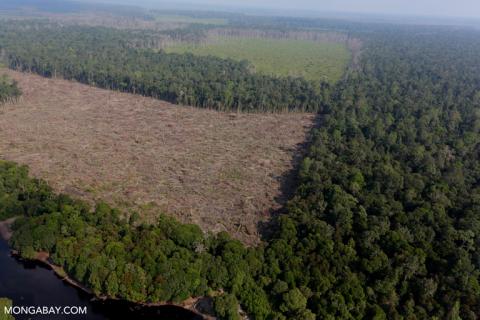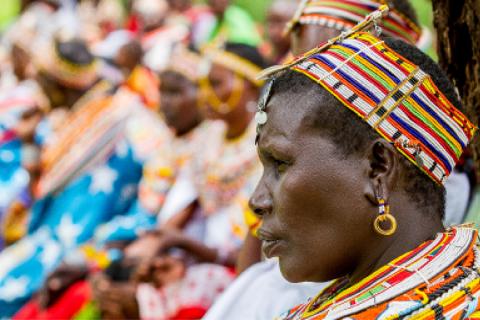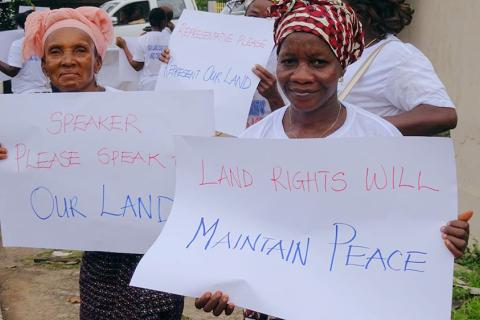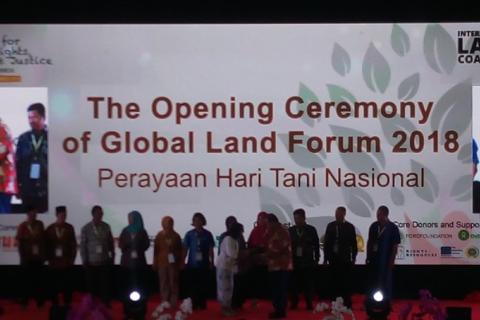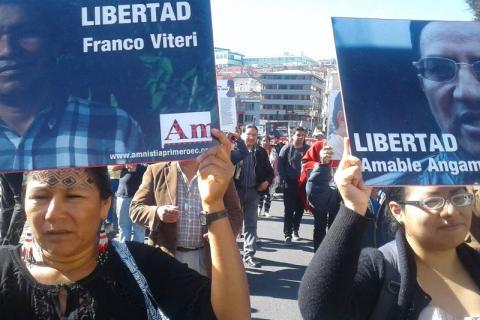Land Matters: How Securing Community Land Rights Can Slow Climate Change and Accelerate the Sustainable Development Goals
There is a strong and compelling environment and development case to be made for securing indigenous and community lands. Securing collective land rights offers a low-cost, high-reward investment for developing country governments and their partners to meet national development objectives and the 17 Sustainable Development Goals. Securing community lands is also a cost-effective climate mitigation measure for countries when compared to other carbon capture and storage approaches.
Palm oil companies continue to criminalize farmers in Sumatra
- Nearly five years after Friends of the Earth U.S. reported about escalating conflict between farmers in the village of Lunjuk on the Indonesian island of Sumatra and palm oil company PT Sandabi Indah Lestari — or PT SIL — those communities remain in conflict with PT SIL, which supplies Wilmar International, the world’s largest palm oil trader.
Land Rights Pose Opportunities, Not Just Risks, to Companies and Social Justice
By focusing on four critical aspects of land rights, businesses can not only manage risks, but also do a great deal of global good while strengthening their bottom lines.
Overcoming Data Silos to Realize the VGGTs and SDGs: The role of data ecosystems in achieving global development goals
With the inclusion of several land-related indicators in the Sustainable Development Goals (SDGs), land data collection and monitoring has reached an unprecedented momentum. There is a palpable positive drive within both global and local civil society to contribute to the official process through advocacy, data collection and international monitoring efforts. The broad consensus is that data and information are building blocks that support better informed decision and policy making at all levels.
The Land Reform Agenda for Kenya Webinar: A Summary
There is no doubt that land use and reforms are at the heart of Kenya’s political and economic future stability. In Kenya in particular, land has a central position in Kenya’s social, economic and political history. An estimated 75% of the country’s population depends on land for their livelihoods, making the ownership, management and control of the resource of great importance. Land is an enabler to support manufacturing, access to affordable and decent housing, universal health care, food security and nutrition.
An Historic Victory for Liberian People and Communities
On September 19, Liberian President George Manneh Weah signed into law the Land Rights Bill (LRB), a landmark piece of legislation that recognizes the rights of Indigenous Peoples and local communities to their customary lands and gives customary land the same standing as private land in Liberia.
The Land Portal Attends the 2018 Global Land Forum
Working on and with open data means that we are avid believers in the notion that pathways of information should be opened up, that we are building the proper technological infrastructures for information to be appropriately shared, thereby creating connections. Networks such as the International Land Coalition serve this very same purpose; with the exchange of information and knowledge being one of the Coalition’s main missions.
For our food and our future – Join the global mobilization for land rights now!
The world would be a pretty dull and hungry place if it weren’t for Indigenous Peoples and local communities.
Indigenous Peoples and local communities play a central role in feeding the world. They look after much of the world’s biodiversity, with at least 80% of planet’s biodiversity found in Indigenous territories and waters. And they have an incredible track record of protecting the climate by preventing deforestation and properly managing pasturelands.
How can land investments be both sustainable and equitable?
In a saturated marketplace, food and beverage companies too often avoid addressing land rights issues.
Investigate, Expose and Advocate: Stopping illegal environmental destruction and violence against human rights defenders
When Defending the Land Becomes a Crime
BERTA CÁCERES, ASSASSINATED in her home in March 2016, was just one of hundreds of Latin American environmental activists attacked in recent years. At least 577 environmental human rights defenders (EHRDs) were killed in Latin America between 2010 and 2015 – more than in any other region. In addition to violence, EHRDs suffer legal threats and harassment, severely impeding their work. Before Cáceres' murder, she faced trumped-up charges due to her opposition to hydroelectric dams on her indigenous community's territory.


